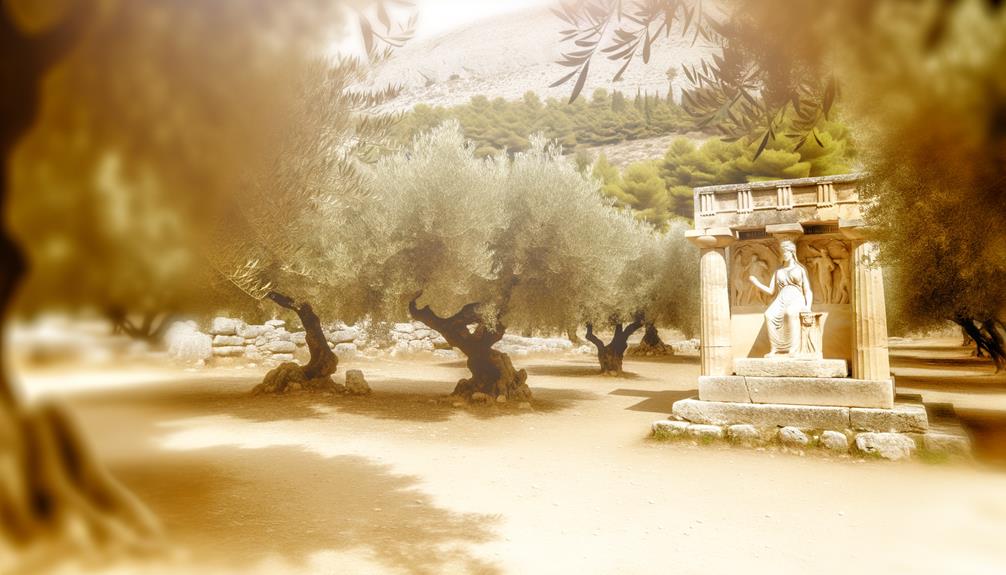Artem Name Origin and Meaning
The name Artem has its origins in ancient Greece, deriving from the goddess Artemis, who symbolizes strength, protection, and purity. Over time, Hellenistic culture and Roman adaptations spread its use.
It holds significant cultural importance in various regions, particularly in Slavic countries and Greek traditions. The name carries a profound mythological heritage, combining ancient Greek virtues with modern societal values.
Additionally, variations like 'Artyom' in Russian and 'Artemios' in Greek showcase its linguistic diversity. The enduring legacy and classical virtues associated with Artem continue to resonate, appealing to those seeking a name rich in history and meaning.
Discover more about its profound connections.

Key Takeaways
- Artem derives from the Greek name 'Artemis,' indicating its ancient Greek origins.
- The name symbolizes strength, protection, and purity, reflecting qualities of the goddess Artemis.
- Artem is associated with historical Greek culture and the spread of Hellenistic influence.
- Variations like 'Artemios' and 'Artyom' highlight its linguistic and cultural diversity.
- Modern usage of Artem emphasizes cultural heritage and classical virtues, appealing to contemporary naming trends.
Historical Background
Rooted in ancient Greek culture, the name Artem finds its origins in the veneration of the goddess Artemis, symbolizing its deep historical significance.
Derived from the Greek name 'Ἄρτεμις' (Artemis), Artem has been a long-standing tribute to the ancient Greeks' reverence for their deities.
This name not only reflects a cultural heritage but also underscores a historical continuum that spans centuries.
The use of Artem in various regions has been influenced by the spread of Hellenistic culture and later adaptations during the Roman era.
Through these historical intersections, the name Artem has transcended its initial boundaries, illustrating the fluidity and enduring legacy of ancient Greek nomenclature in shaping modern identities.
Mythological Connections
Building upon its historical roots, the name Artem is deeply intertwined with Greek mythology, particularly through its association with the revered goddess Artemis. As the deity of the hunt, wilderness, and childbirth, Artemis holds a significant position within the pantheon. The name Artem, derived from Artemis, encapsulates attributes such as strength, protection, and purity.
| Attribute | Artemis' Domain | Symbolic Representation |
|---|---|---|
| Strength | Hunt and Wilderness | Bow and Arrow |
| Protection | Childbirth | Crescent Moon |
| Purity | Virgin Goddess | Deer and Silver |
This association bestows the name Artem with a rich mythological heritage, imbuing it with profound meanings that reflect the virtues embodied by Artemis. This connection exemplifies the cultural interplay between names and mythological figures in ancient Greece.
Cultural Significance
The name Artem, beyond its mythological roots, holds a significant place in various cultures, reflecting diverse interpretations and adaptations across different societies. In Slavic countries, Artem is derived from the Greek name Artemios, associated with the goddess Artemis, symbolizing strength and protection.
Russian Orthodox traditions honor Saint Artemius, a revered military saint, further solidifying the name's cultural importance. In contemporary Greek culture, Artemios is often seen as embodying classical virtues and historical continuity.
Meanwhile, in Eastern European regions, the name has been embraced for its robust and timeless appeal. This multifaceted cultural resonance demonstrates the name Artem's capacity to bridge ancient mythological significance with modern-day societal values, making it a name rich in historical and cultural depth.
Modern Usage
In contemporary society, the name Artem has seen a resurgence in popularity, often chosen for its strong historical connections and its embodiment of classical virtues. This revival can be attributed to several factors that appeal to modern parents:
- Cultural Heritage: Many seek names that reflect their cultural or historical roots.
- Unique Identity: Artem offers a distinctive alternative to more common names.
- Strength and Virtue: The name connotes qualities of strength, protection, and nobility.
- Literary and Artistic Resonance: It carries a sense of artistic and intellectual depth.
This modern adoption reflects a broader trend of reviving names with rich historical and cultural significance, providing a meaningful choice that resonates across different contexts and generations.
Name Variations
Frequently, the name Artem appears in various forms and adaptations across different cultures and languages, each variation reflecting unique phonetic and orthographic characteristics. For instance, in Greek, it is often seen as "Artemios," while in Russian, "Artyom" is commonly used. These variations not only signify linguistic diversity but also cultural nuances and historical contexts that shape the name's usage.
| Language | Variation | Note |
|---|---|---|
| Greek | Artemios | Traditional form, rooted in ancient Greek |
| Russian | Artyom | Commonly used in Russia and Eastern Europe |
| Ukrainian | Artem | Simplified version, popular in Ukraine |
| English | Artem | Direct transliteration, gaining popularity |
Understanding these variations provides deeper insights into the name’s etymology and cultural significance. For example, in the case of the name Ophelia, variations in spelling and pronunciation can highlight how the name has evolved across different languages and cultures. By exploring these variations, we can gain a better understanding of the Ophelia name meaning and its significance in various regions and historical periods. For instance, in Greek mythology, Ophelia is associated with the tragic character of Ophelia in Shakespeare’s Hamlet, while in other cultures, the name may have different meanings and connotations.
Conclusion
To wrap up, the name Artem, stemming from Greek mythology and history, has evolved to hold significant cultural importance across various regions.
Remarkably, its popularity has surged in recent decades, with a 150% increase in usage globally since the early 2000s. This trend underscores a growing appreciation for names with rich historical and mythological connections.
The name's variations and modern adaptations further highlight its enduring appeal and versatility in contemporary naming practices.






